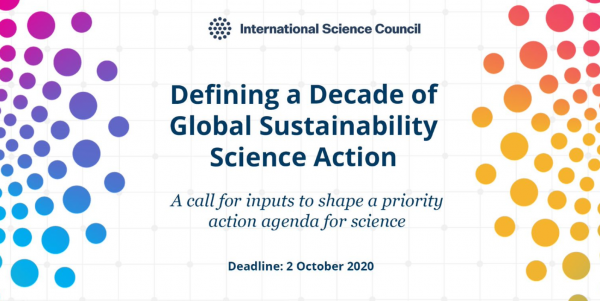

Global Call for Priorities for Science
Publication date: Wed, 02 Sep 2020
The International Science Council is currently running a call for inputs to shape a priority action agenda for science.
Deadline: 2 October 2020
With just ten years to go to achieve the 17 Sustainable Development Goals (SDGs) of the UN’s 2030 Agenda, science funders from around the world have asked the International Science Council (ISC) to convene the insights and ideas of the broader global scientific community on the critical priorities for science that will support and enable societies to accomplish the goals by 2030. We want to hear from scientists in all fields and all disciplines, including the natural, social and human sciences.
The idea behind this call is to identify priorities for game-changing action in two related domains:
- Science for sustainability transformations: promoting mission-driven research that harnesses solutions-oriented knowledge from across the spectrum of scientific disciplines and approaches, including fundamental research; adopts a systems-based approach; and informs policy and public action through trans-disciplinary engagement with relevant decision makers and innovators from the worlds of policy, civil society and business.
- Transformations of science systems: supporting the evolution of science systems in order to support their effective contribution to the 2030 Agenda; including the development of open science systems, the promotion of trans-disciplinary approaches to knowledge generation, knowledge brokerage and science advisory ecosystems, scientific capacity needs at individual, institutional and policy levels, as well as systems of research incentives.
This is a unique opportunity for the international science community to advise science funders about the support that science needs in order to maximize its impact on the achievement of the SDGs in the next decade. What are the critical knowledge or data, as well as capacity gaps that funders should be addressing? And how do science and related funding systems need to change in order to amplify and accelerate impactful science?











